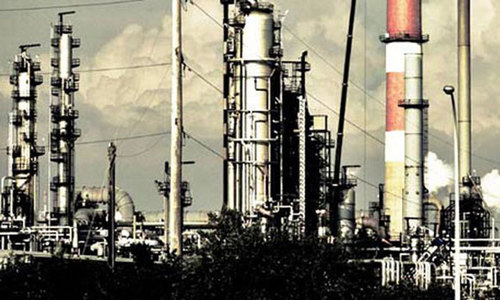ISLAMABAD: Confirming economic slowdown due to stabilisation programme, the government on Thursday said the operations of local refineries had slowed down because of high production of residual fuel oil (RFO) and the international ban on its use for bunkering with effect from Dec 31, 2019.
In a statement, the petroleum division said that because of new regulations issued by the International Maritime Organisation (IMO), crude oil import had reduced during the first six months of the current fiscal year. Under these regulations, RFO containing more than 0.5 per cent of sulphur content is disallowed for use in ships and its violation carries heavy fines.
Most of the country’s refineries hardly produce furnace oil of less than 3.5pc sulphur content. As a result, furnace oil prices have plummeted by almost three times. The local refineries on an average produce almost 25pc furnace oil from their total crude processing.
“As of crude oil import, the operation of the refineries has indeed slowed down because of the high production of RFO which cannot be used in bunkering after Dec 31, 2019 due to IMO 2020 regulation,” the petroleum division said.
Petroleum division says economic growth rate slows due to fiscal stabilisation programme
Interestingly, the crude oil import plunged by 27pc in dollar terms and about 15pc in terms of quantity during the first six months of the fiscal year before the IMO regulation came into force on Jan 1, 2020.
The petroleum division said it was engaged in development of a plan to upgrade oil refineries. Also, it said, the reduction in oil import bill was caused by increased share of power generation on coal in the energy mix, instead of furnace oil and LNG. Another factor in reduced import bill, it added, was the increased movement of high speed diesel through rail as compared to the past, while use of motor gasoline had reduced due to a decline in sale of vehicles and better availability of CNG in the last 12 months.
The petroleum division also confirmed that “the growth rate of economy has indeed slowed due to fiscal stabilisation programme”, but said the size of industry or transport had not reduced drastically. When asked to support these claims with production and consumption data, the petroleum division’s spokesperson said the data could not be made public without audit.
Another official said there was no requirement of audit for oil production, consumption or imports. In fact, he added, the Auditor General of Pakistan or even internal auditors never audited oil production numbers.
In contrast to the petroleum division’s claims, the data released by the Pakistan Bureau of Statistics showed 12.2pc decline in production of petroleum products by the local refineries during the first five months of the current fiscal year. The PBS data showed that output of 10 out of the 11 petroleum products was lower than last year.
Production of two major oil products — petrol and high speed diesel, mostly used in the transport and agricultural sectors — was down by more than 13pc each during the first five months of the current fiscal year. Production of furnace oil was down by almost 16pc, but this could be attributed to the declining share of furnace oil in power generation. Jet (airline) fuel output was down by 4.27pc and that of kerosene by 5.85pc.
Production of lubricating oil and jute batching oil was down by 18.26pc each during the first five months of the current fiscal year. Similarly, production of LPG and other petroleum products was down by 11.4pc and 27.3pc, respectively.
The only product that saw an increase in its production was solvent naphtha as it was up by 12.65pc. The overall oil import was down by 20pc.
Published in Dawn, January 24th, 2020















































